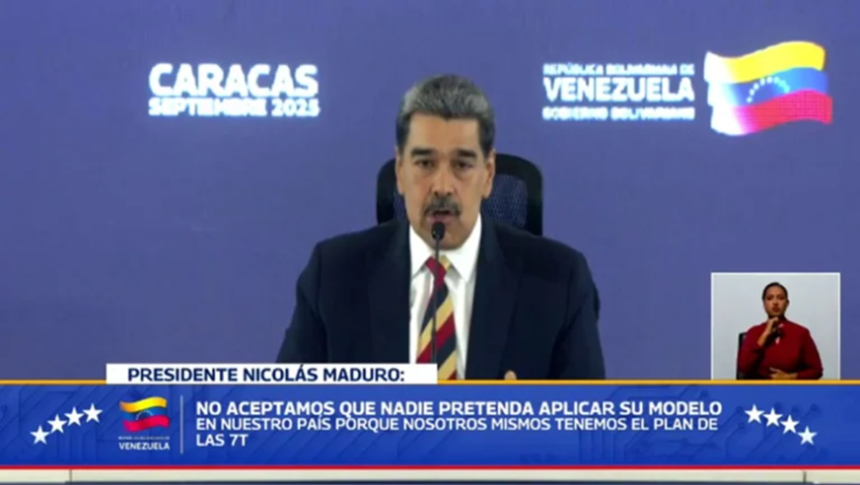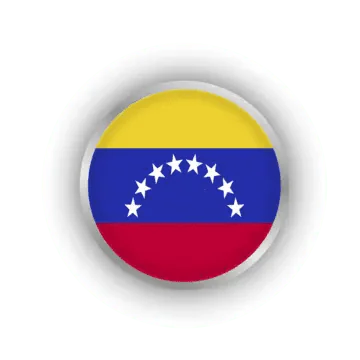On Monday, Venezuelan President Nicolas Maduro held a press conference with representatives of international media in which he analyzed the current geopolitical situation in the Caribbean.
During this meeting with journalists, the Bolivarian leader addressed the international situation from multiple angles, the main ones of which are presented below.
Venezuela rejects supremacism
“There are still those who want to impose supremacism and view us from afar as we did in the era of colonization,” Maduro said, questioning the patterns of international domination.
“The heirs of the old colonialisms and supremacisms hold power and still view our nations with contempt and arrogance,” he emphasized, highlighting that global awareness against all forms of supremacism is awakening.
“A global awareness is rising that will not allow, under any circumstances, the imposition of a new type of supremacism or colonialism, either in Our America or in the rest of the world.”
Commander Chavez’s legacy has allowed the Bolivarian nation to defeat the blockade
President Maduro maintained that although Commander Hugo Chavez died 12 years ago, his ideas and work live on in the revolutionary socialism that Venezuela champions.
“We fought against the sanctions and the blockade and defeated them… Today, Venezuela’s economic system is robust. We also fought and defeated the political blockade.”
The attack on the Venezuelan presidential image seeks to destabilize the country
The Bolivarian leader emphasized that “empires need to demonize a leader to demonize a project… The attack is not against Maduro but against a people and a sacred history. Gentlemen imperialists: You have not been able, nor will you be able, now or ever, to defeat that history.”
The Bolivarian leader reaffirmed Venezuela’s position as a bastion of anti-colonialism and resistance, emphasizing that his nation stands as an example of a new global consciousness that rejects hegemonic power dynamics.
“Its words resonate in a geopolitical context marked by multipolarity, where the global south seeks to consolidate its sovereignty in the face of external interference,” he said.
Maduro described Venezuela’s historical trajectory as a path of struggle, resistance, and revolution that extends into the 21st century through humanistic socialism. “This development model is distinguished by its inclusive nature and its commitment to the majority,” President Maduro explained.
Solidarity SVG Calls to Condemn the US Threats On Venezuela’s Sovereignty: Saint Vincent and the Grenadines Solidarity with Venezuela Committee issued a statement calling for action in the face of the recent violation of Venezuelan maritime space by a US flotilla -which includes a nuclear submarine and more than 4,000 troops- constitutes an illegitimate aggression under the pretext of combating drug trafficking.
“Saint Vincent & The Grenadines and CARICOM nations cannot but be very concerned about the violations of Venezuela’s sovereign maritime space by a flotilla of US warships and a nuclear-powered submarine, in the name of fighting drugs,” the statement reads.
Also the SVG Solidarity with Venezuela Committee recalls that United Nations agencies have repeatedly reported that Venezuela is not complicit in the illegal drugs trade and that “Caracas has always cooperated fully with international agencies in combatting the drug trade.”
The US military operation is described as a dangerous action that could lead to a war with serious consequences for Saint Vincent and the Grenadines, the Caribbean, Latin America and the whole world.
Solidarity SVG highlights the current international context, marked by war in Ukraine, genocide in Gaza and Palestine, and other conflicts, which require efforts to maintain peace and not to encourage military interventions and threats in the region.
The solidarity committee also recalls with gratitude Venezuela’s solidarity with the Caribbean countries, especially through initiatives such as PetroCaribe and the Free Trade Area for Latin America and the Caribbean project, which have directly benefited nations like yours.
More than 300 Venezuelans return home from the US
A total of 319 Venezuelans—281 men, 31 women, 6 boys, and 1 girl—arrived this Friday at Simón Bolívar International Airport in Maiquetía, La Guaira, from Texas, United States, on flight 63 of the (Gran Misión Vuelta a la Patria) Great ”Return to the Homeland” Mission.
The returnees were received by Venezuelan authorities, including officials from the Scientific, Criminal, and Criminal Investigation Corps (CICPC), the Bolivarian National Intelligence Service (SEBIN), the Bolivarian National Guard (GNB), and the Bolivarian National Police Corps.
The Return to the Homeland Plan offers legal assistance, educational, cultural, and sports reintegration, and socioeconomic protection, consolidating itself as a humanitarian initiative for the safe return of Venezuelans.
Russia Backs Venezuela and Condemns U.S. Warship Deployment in the Caribbean
Russia expressed its full support for the Venezuelan government and people amid the deployment of U.S. warships in the Caribbean.
“Practices of military intervention must remain in the past,” Russian Foreign Ministry spokeswoman Maria Zakharova said after the U.S. deployed warships off the Venezuelan coast.
The Russian diplomat confirmed that her country “categorically rejects the threat of the use of force against sovereign states as an instrument of foreign policy.”
Venezuela has “the inalienable right to freely determine its political, economic and social path without external pressures,” she said, warning the international community about the risks implied by the U.S. militarization of the Caribbean.
Venezuela Has Neutralized 402 Drug-Trafficking Aircraft
On Thursday, Venezuelan Defense Minister Vladimir Padrino Lopez announced that the Bolivarian National Armed Forces (FANB) have neutralized a total of 402 aircraft linked to drug trafficking in operations carried out across the country.
The most recent operation took place in Maroa municipality in Amazonas state, where Venezuelan troops captured an aircraft, disabled a logistics camp and seized strategic materials from criminal groups.
“Nothing stops us! Venezuela has not been and will not be a route for illicit drug trafficking!” Padrino Lopez said on social media.
The defense minister reaffirmed the Venezuelan government’s ongoing commitment to combating transnational organized crime, particularly in border and strategic areas.
These results contrast with international narratives that portray Venezuela as a narco state, he said, arguing that concrete actions and verifiable figures demonstrate the effectiveness of national security operations.




